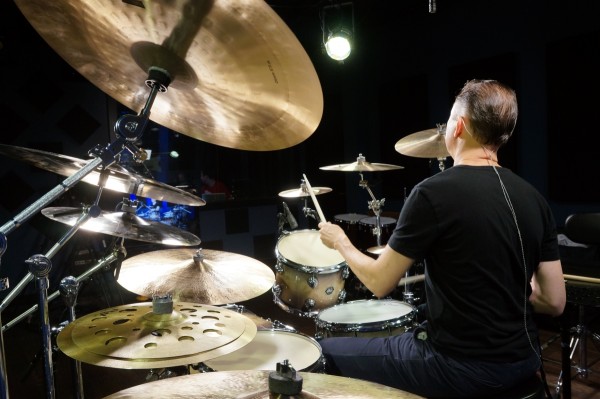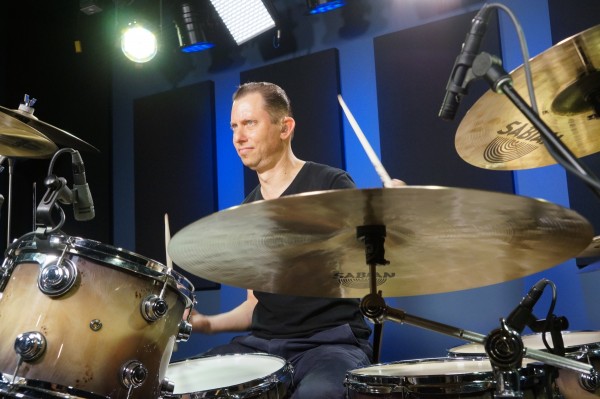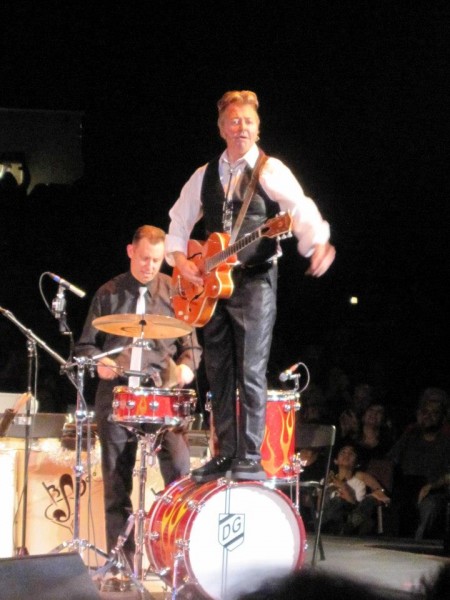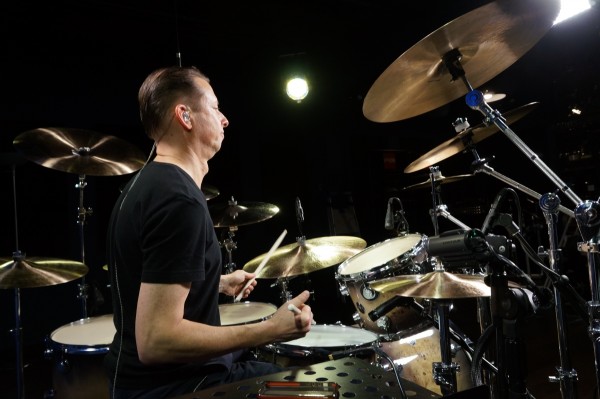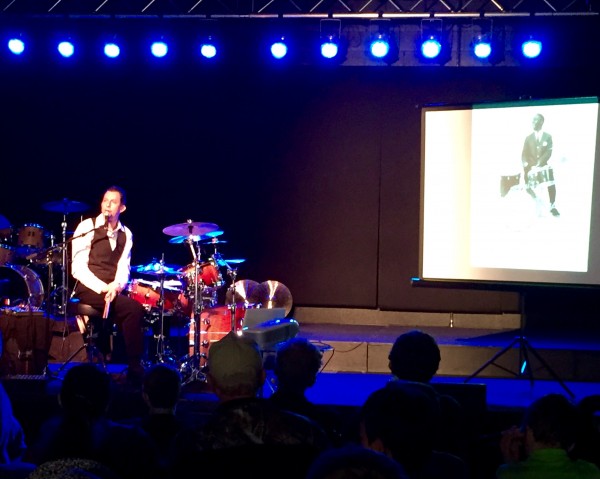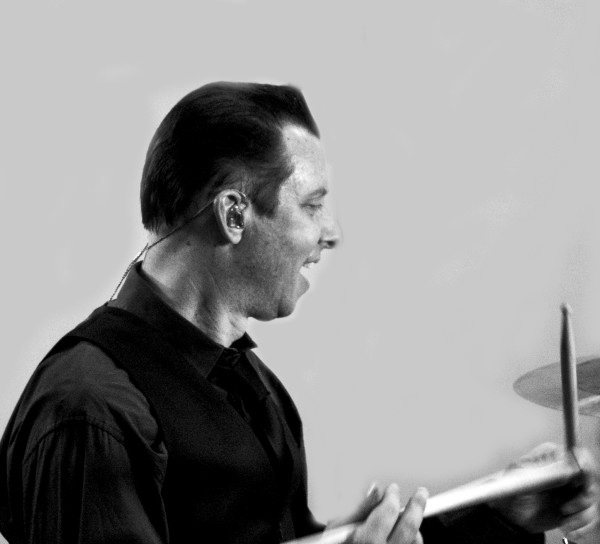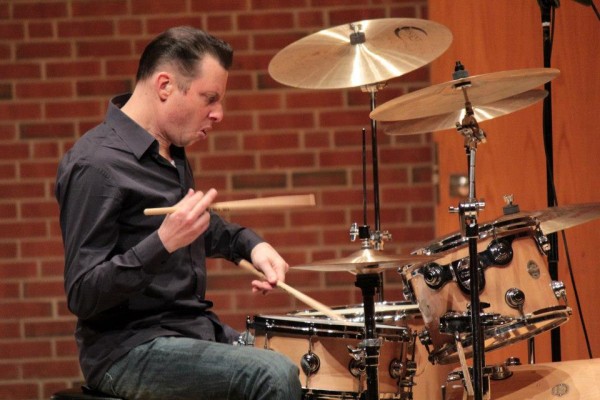The Influence of Radio
I’ve always loved music. When I was a kid, my parents refused to buy a television – they were sort of taking a stand against letting their children’s minds be rotted by television – so my sister and I became radio fanatics. We listened to the radio from morning till night, and really listened, perhaps more so than our peers. I think that set the course for my life as a musician, in terms of the way I thought about and understood music.
(photo: Jeremy Sibson)
Muppets Animal versus Rita Moreno
One of my all time favorite clips! Animal gets into it with the spicy Rita Moreno, and the gloves come off!
Bonham and the Quarter Note Pulse
So, if you know me at all, you probably know that one of my favorite concepts to talk about as an educator is the QUARTER NOTE PULSE. This clip provides a fine example of how the approach toward “swinging” four quarter notes begun in the 1920s and ’30s was still going strong into the modern rock era.
Here’s Led Zeppelin playing “How Many More Times” in 1969. Note John Bonham’s RH on the ride cymbal. His technique (what I refer to as “throw-up”) belies an upbringing based in jazz studies and the influence of swinging drummers like Gene Krupa, Max Roach and Earl Palmer (remember, there was no such thing as a “rock drummer” or “rock technique” when Bonham was a lad in mid-fifties England). Even when the band fully kicks in to the groove, Bonham’s approach is still coming from a “swung 8th” perspective. It’s an important distinction to make, because the jazz/swing quarter note underpinning is what makes so much of 1950s and ’60s rock’n’roll so memorable.
The upshot is this: If you love Bonham, then do some research and learn what influenced him. You’ll discover some intricacies in rock you never realized, and will improve your playing as a result!
For a deeper discussion of my approach to this topic, check out the recent FREE LIVE LESSON I recently recorded with the good folks at Drumeo: http://bit.ly/1WLRukC
History of the Drumset – Part 12 – Double Bass
While it may seem like double bass is a rather new invention, it’s origins can be traced back to Louie Bellson. Bellson wrote and debuted the first piece to feature double bass in the early ’50s when he was with Duke Ellington’s orchestra!
For double extra credit, what was the name of that piece?

